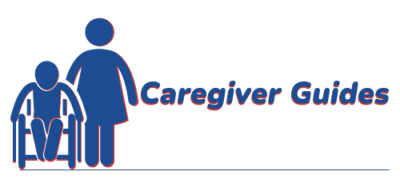
Walking is our inherent mode of mobility. It’s something that we humans have done since the dawn of time and it is our primary way of expressing our individual independence. But, it’s also something that we generally take for granted and don’t fully appreciate the wonder of walking until it becomes a challenge, or worse, an impossibility.
I have suggested elsewhere in a different article how important I feel walking is to us as humans and to the elderly specifically. It’s essential if an individual seeks to remain independent and age in place. Indeed, the inability to safely walk is one of the primary reasons that a person has to relocate to an assisted living facility or nursing home.
In my other articles I have encouraged caregivers to encourage and assist with a regular walking program with their aging parents or elderly care recipient. It’s necessary to, what we in the business say, “maintain function”. Simply put, to be able to live and function in their own space safely and without much effort.
Recently, research has suggested that a regular walking program can also help stave off a potential diagnosis of dementia. There have been many studies that suggest that mental and cognitive decline is affected by a person’s level of physical fitness and activity routine. Many of these studies followed seniors that were involved in sports and formal exercise programs like yoga or weight lifting.
However, a recent study in JAMA suggests that simply walking will go a long way to keeping the elderly alert and mentally sharp.
People between the ages of 40 and 79 who took 9,826 steps per day were 50% less likely to develop dementia within seven years, the study found. Furthermore, people who walked with “purpose” — at a pace over 40 steps a minute — were able to cut their risk of dementia by 57% with just 6,315 steps a day.
from CNN
Combine this with the prospect of maintaining function and adopting a regular walking program is actually a no brainer. For those who are reluctant to relocate to a “home” and want to age in place in their own home and familiar surroundings, this should be considered top of the list to do so.
The largest reduction in dementia risk — 62% — was achieved by people who walked at a very brisk pace of 112 steps per minute for 30 minutes a day, the study found. Prior research has labeled 100 steps a minute (2.7 miles per hour) as a “brisk” or moderate level of intensity.
CNN
“This study represents an important contribution to step count-based recommendations for dementia prevention,” del Pozo Cruz and co-authors wrote. “Step count-based recommendations have the advantage of being easy to communicate, interpret, and measure, and may be particularly relevant for people who accumulate their physical activity in an unstructured manner.”
MedPage
From the US CDC:
“As an older adult, regular physical activity is one of the most important things you can do for your health. It can prevent or delay many of the health problems that seem to come with age. It also helps your muscles grow stronger so you can keep doing your day-to-day activities without becoming dependent on others.
Keep in mind, some physical activity is better than none at all. Your health benefits will also increase with the more physical activity that you do.
Adults aged 65 and older need:
- At least 150 minutes a week (for example, 30 minutes a day, 5 days a week) of moderate intensity activity such as brisk walking. Or they need 75 minutes a week of vigorous-intensity activity such as hiking, jogging, or running.
- At least 2 days a week of activities that strengthen muscles.
- Activities to improve balance such as standing on one foot about 3 days a week.
If chronic conditions affect your ability to meet these recommendations, be as physically active as your abilities and conditions allow.”
Follow the links below to read the articles in their entirety:

